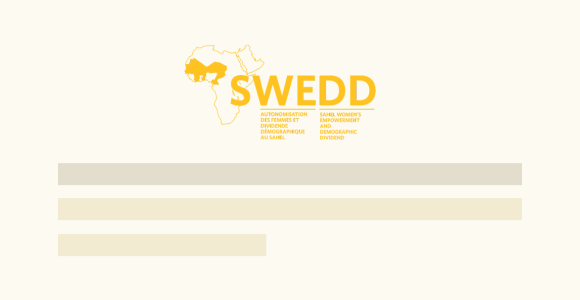

NEWS
National Demographic Dividend Observatories : a catalyst for development in SWEDD countries
09 May 2024

In 2017, African leaders joined forces with a bold plan to unlock the immense power of their youth. Today, that plan is turning into reality, thanks to the Sahel Women’s Empowerment and Demographic Dividend project known as SWEDD.
In partnership with UNFPA and the World Bank, SWEDD is making waves across 12 countries in West and Central Africa. With their technical expertise, nine countries have set up National Demographic Dividend Observatories, turbocharging their development.
Watch the video on NODDs in SWEDD countries
The National Observatories generate vital data to guide policymaking and monitor the indicators outlined in the ICPD action plan on the demographic and gender dividends.
NDDOs are vital for implementing the African Union's demographic roadmap and the ICPD plan, leading to policy changes and increased budget allocation for human capital.
Despite security and climate challenges, countries have made significant efforts. In Mali, 20% of the budget is allocated to education and the health budget has increased from 26% to 28% in 2021. In Chad, the budget allocated to health has risen from 4% in 2017 to 10% in 2020. In Mauritania, it has risen from 4% in 2017 to 5.3% in 2019. And in Niger, the share of the budget allocated to economic affairs has risen to 53% in 2019.
National Observatories are instrumental in monitoring progress towards achieving UNFPA’s three transformative goals: Zero maternal deaths, zero unmet need for family planning, and zero gender-based violence by 2030.
From around 1,000 maternal deaths per 100,000 live births in 1994, today this number has been halved in Mali, Mauritania and Niger.
Efforts have also been made to address the unmet need for modern family planning, resulting in a notable reduction. Such progress is commendable, but challenges remain… especially in Mali, Mauritania, Niger, and Chad where the need remains high. The prevalence of FGM in Mauritania is 64%. And in Niger, 76% of children are married before the age of 18, 70% in Mali and 67% in Chad.
The demographic dividend tracking index serves as a barometer for assessing progress in implementing demographic dividend strategies.
Sustained support for NDDOs is needed to ensure they continue leading us towards progressive policies and domestic budget for a brighter future for Africa's youth. We can't ignore the unfinished business of tackling high rates of child marriage and FGM outlined in the ICPD Plan of Action. It's crucial to invest further in building human capital for Africa's economic growth.
Together, we have the power to turn challenges into opportunities and unlock the full potential of the demographic dividend across the continent!
